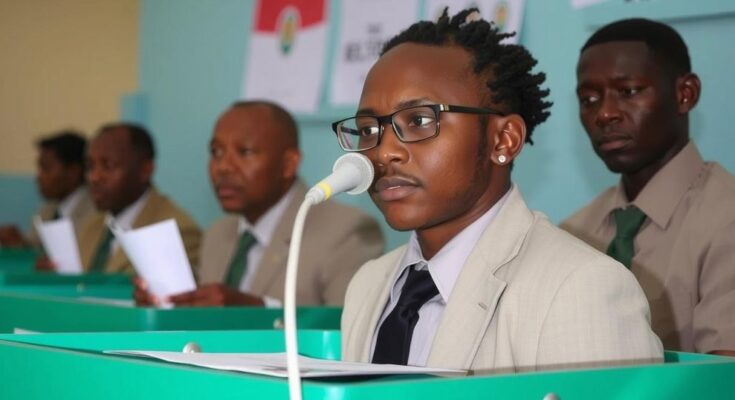The United Nations has formed a technical committee of Libyan experts to address electoral issues and promote national elections, following stalled political processes since the collapse of elections in December 2021. The committee aims to resolve conflicts over electoral laws and facilitate a timely electoral framework amid skepticism from the Libyan populace regarding political motivations.
The United Nations has initiated a new endeavor aimed at addressing the prolonged electoral impasse in Libya, as stated by the acting head of the UN mission in Libya (UNSMIL) on Sunday. This initiative involves the formation of a technical committee composed of Libyan experts who will strive to tackle contentious issues hindering the electoral process. The formation of this committee comes in light of the political stalemate that has persisted since the collapse of elections initially scheduled for December 2021, primarily due to disputes concerning the eligibility of key candidates.
As articulated by Stephanie Koury, acting head of UNSMIL, the newly established committee will seek avenues to resolve outstanding electoral law issues. The committee’s objective includes expediting the election timeline and providing proposed guarantees and assurances to facilitate this process. Despite the establishment of a Government of National Unity (GNU) under Prime Minister Abdulhamid al-Dbeibah through a UN-supported framework in 2021, the parliament’s failure to recognize its legitimacy complicates the governance landscape. Prime Minister Dbeibah has expressed his refusal to relinquish power to a successor without conducting national elections first.
Libya has experienced a protracted period of unrest since the NATO-backed uprising in 2011, leading to a division between eastern and western factions by 2014, each governed by rival administrations. While the major political stakeholders in Libya have consistently advocated for elections, widespread skepticism persists among the populace, questioning the genuine intentions of these actors to pursue a democratic vote that could displace them from their current positions. Koury emphasized that UNSMIL will persist in fostering the unification of military and security institutions and promoting national reconciliation in collaboration with various partners.
The situation in Libya has been precarious since the 2011 uprising, which led to the toppling of Muammar Gaddafi’s regime. Following a decade marked by conflict and fragmentation, various factions have vied for control, resulting in a complex political landscape characterized by multiple governments and armed groups. The formation of a semblance of governance, such as the Government of National Unity in 2021, has failed to stabilize the country due to the persistent lack of trust among political entities and the absence of a valid electoral process, culminating in the failed elections of December 2021.
In conclusion, the United Nations’ latest initiative to form a technical committee of Libyan experts aims to break the deadlock in the electoral process that has plagued Libya since late 2021. Although all significant political players endorse elections, doubts linger among citizens regarding their commitment to genuinely democratic processes. The UN mission’s continued efforts to unify Libya’s military and security sectors and promote reconciliation remain critical as the country seeks a path toward stability and legitimate governance.
Original Source: www.newarab.com




